Disclosure: This article contains affiliate links. We may earn a commission from purchases at no extra cost to you, which helps our travel content.
There's something profoundly nostalgic about returning to your home country as a temporary visitor, especially when that visit transforms familiar streets into your mobile office. Having spent the last six years in Birmingham's urban planning department, my recent month-long return to Toronto—just three hours from my London, Ontario hometown—offered a fascinating perspective on how this vibrant metropolis has evolved into a digital nomad haven. The city where I once studied urban systems has reinvented itself with intentional spaces that bridge community, technology, and that distinctly Canadian blend of cosmopolitan energy and neighborhood warmth. Whether you're contemplating a week or several months of remote work in Toronto, I'm delighted to share both professional observations and personal discoveries from navigating this dynamic cityscape as a digital pilgrim of sorts.
Finding Your Digital Sanctuary: Toronto's Co-working Landscape
Toronto's co-working ecosystem reflects its urban character—diverse, accessible, and thoughtfully distributed throughout the city's varied neighborhoods. As an urban planner, I'm particularly impressed by how these spaces have been integrated into the existing urban fabric, often revitalizing heritage buildings while preserving their architectural integrity.
Centre for Social Innovation (CSI)
With multiple locations across the city, CSI represents everything I love about thoughtful adaptive reuse. Their Spadina Avenue location occupies a magnificent heritage building where social entrepreneurs and digital professionals work alongside community activists. The space feels less like an office and more like a living organism of collaboration. Their hot desk packages start at $30/day with monthly options that provide exceptional value for longer stays.
Workhaus
For those seeking a more corporate atmosphere with premium amenities, Workhaus offers sleek, professional environments in the Financial District. Their Richmond Street location became my go-to whenever I had important video calls, as their soundproofed phone booths and meeting rooms are equipped with excellent videoconferencing equipment similar to what I use in Birmingham. The panoramic views of the city skyline from their 21st-floor location provided an inspiring backdrop for creative thinking.
Alternative Spaces
Beyond traditional co-working venues, Toronto excels in what I call 'ambient workspaces'—cafés and public institutions designed with remote workers in mind. The Toronto Reference Library near Yonge and Bloor features stunning architecture by Raymond Moriyama, with designated quiet zones and free Wi-Fi. For a more social atmosphere, Quantum Coffee on King Street West offers specialty brews and communal tables where spontaneous networking happens organically.

💡 Pro Tips
- Purchase a Presto card immediately for seamless transit between workspaces across the city
- Many co-working spaces offer free trial days—schedule these strategically throughout your first week
- Toronto Public Library branches offer free workspace alternatives with surprisingly good Wi-Fi speeds
Neighborhood Guide: Where to Live as a Digital Nomad
The neighborhood you choose will fundamentally shape your Toronto experience, influencing everything from your daily commute to your after-work social life. Having explored numerous districts during my month-long stay, I've assessed each through both an urban planner's analytical lens and a digital nomad's practical needs.
Liberty Village
This former industrial area has transformed into a digital nomad hub without losing its distinctive character. The density of converted warehouses housing tech startups and creative agencies makes networking almost inevitable. I spent my first ten days in a serviced apartment that offered excellent value compared to downtown hotels, with the added benefit of a proper workspace and kitchen. The neighborhood's self-contained nature means everything you need—from groceries to printing services—is within a 10-minute walk, while still being just a short streetcar ride from downtown.
The Junction
For those seeking a more authentic neighborhood experience, The Junction offers a compelling blend of affordability and character. This west-end neighborhood features excellent coffee shops like Full Stop and Junction Craft Brewing—which doubles as an unexpectedly productive workspace in the afternoons. The area's relative distance from downtown means you'll find more reasonable Airbnb rates, and the UP Express connection to Pearson Airport makes international departures remarkably convenient.
Leslieville
East of downtown, Leslieville provided my most enjoyable living experience. This family-friendly neighborhood offers a village-like atmosphere with independent shops and excellent dining options along Queen Street East. The area's numerous parks, including Jimmie Simpson Park with its free community center Wi-Fi, provided welcome midday breaks for outdoor work sessions. Mercury Espresso Bar became my morning ritual—their consistently excellent coffee and neighborhood regulars offered both caffeine and community.
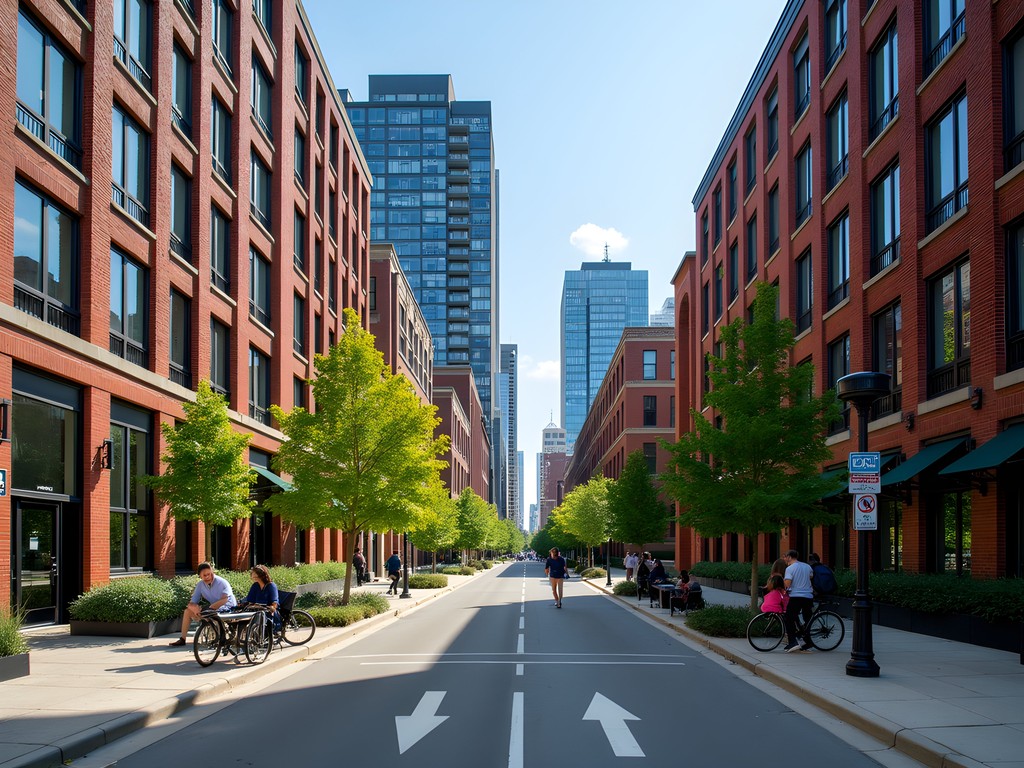
💡 Pro Tips
- Book accommodations near TTC subway lines for maximum mobility
- Consider weekly rates on Airbnb for better value on 2+ week stays
- East and west neighborhoods generally offer better value than downtown locations
Connectivity and Digital Infrastructure
Toronto's digital infrastructure varies significantly across neighborhoods—something I discovered through methodical speed testing across the city (the urban planner in me couldn't resist mapping the results). Understanding connectivity options is essential for productive remote work.
Public Wi-Fi Networks
Toronto offers surprisingly robust public Wi-Fi through its TPL Connect network at all library branches. During my stay, I found the Fort York and Toronto Reference Library locations to be particularly reliable for video calls. The city's broader public Wi-Fi initiative, while growing, remains inconsistent—King Street West and Yonge-Dundas Square offer excellent connectivity, while parks and residential areas are still catching up to the municipal vision.
Mobile Data Solutions
For guaranteed connectivity, I relied heavily on a portable hotspot with a Canadian data plan. Bell and Rogers offer tourist SIM packages, but I found better value through Lucky Mobile's prepaid plan, which provided 10GB of data for under $50 CAD. For digital nomads staying longer than two weeks, this approach proved more economical than daily café purchases for Wi-Fi access.
Connectivity Clusters
Certain areas have emerged as unofficial digital nomad clusters with exceptional connectivity. The stretch of Queen Street West between Spadina and Trinity Bellwoods Park features numerous establishments with fiber connections, including Page One Coffee, where download speeds regularly exceeded 300Mbps. Similarly, the Financial District benefits from enterprise-grade infrastructure that extends to public spaces like Commerce Court's central plaza, where outdoor seating areas offer surprisingly fast free Wi-Fi.
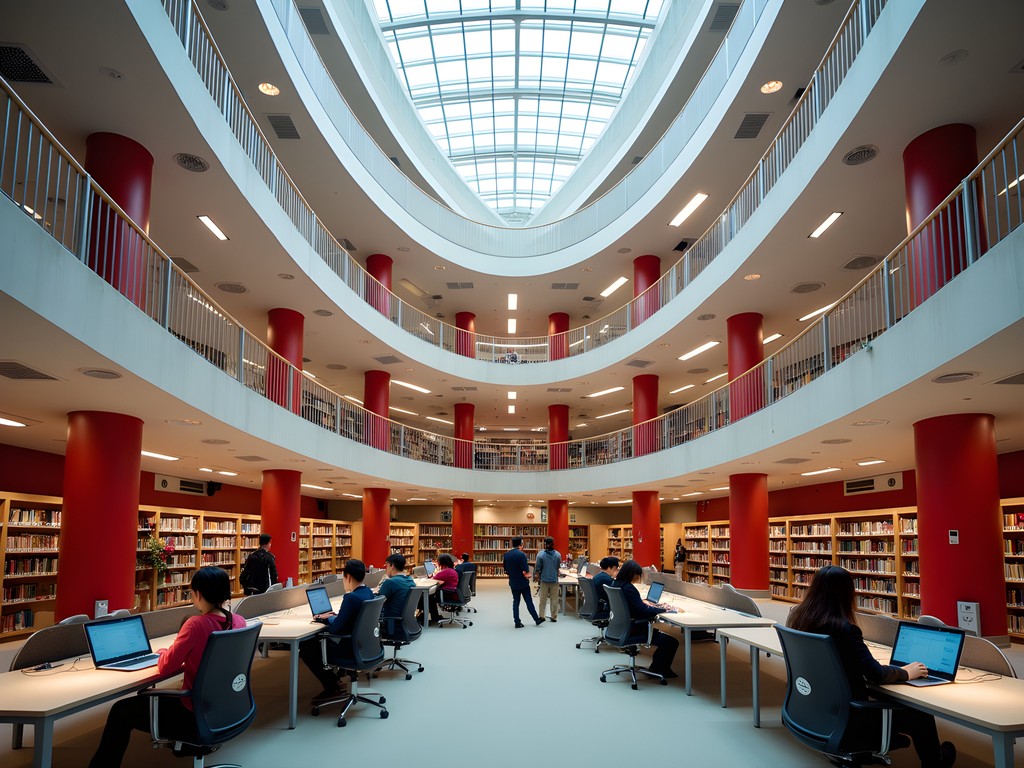
💡 Pro Tips
- Download the City of Toronto Wi-Fi Finder app to locate free public networks
- Consider a Canadian SIM card rather than international roaming for stays longer than a week
- Library cards are available to visitors with proof of temporary address and unlock premium Wi-Fi access
Building Community: Networking and Social Integration
The greatest challenge of digital nomadism isn't finding Wi-Fi—it's finding meaningful connection. Toronto excels in creating spaces and opportunities for temporary residents to integrate into existing communities, something I've studied professionally but experienced personally during my stay.
Meetup Ecosystem
Toronto hosts one of North America's most active Meetup.com scenes, with specialized groups for every conceivable interest. The Toronto Digital Nomads group hosts weekly co-working sessions at rotating venues, providing both workspace and built-in community. As someone with professional interests in urban design, I found tremendous value in the Urban Planning Toronto meetups, where local practitioners welcomed me despite my temporary status. These gatherings often continued informally at nearby pubs, creating natural networking opportunities.
Industry-Specific Events
Whatever your professional field, Toronto likely hosts relevant events worth attending. The MaRS Discovery District regularly hosts open innovation workshops and speaker series that welcome visitors, while the Design Exchange runs exhibitions and talks that attracted a wonderfully diverse crowd of creative professionals. I made several valuable professional connections at a sustainable urban development symposium that have already led to collaborative project discussions between Birmingham and Toronto planning departments.
Recreational Communities
Some of my most meaningful connections came through shared activities rather than professional contexts. The Toronto Outdoor Club welcomes temporary members and organizes everything from urban hikes to weekend camping trips. I joined their Tuesday evening walks along the Don Valley trails, where conversations flowed naturally among a diverse group united by appreciation for urban green spaces. Similarly, drop-in ultimate frisbee games at Trinity Bellwoods Park provided instant community—I packed my travel frisbee specifically for this purpose, having researched the park's active scene before arriving.

💡 Pro Tips
- Schedule at least one community event in your first week to establish connections early
- Toronto Public Library hosts free workshops and talks that attract engaged locals
- Many co-working spaces offer community events to members and day pass users alike
Balancing Productivity and Exploration
The tension between work obligations and the desire to explore a new city defines the digital nomad experience. Toronto's layout and transit system make it particularly conducive to integrating productive work with meaningful exploration.
Strategic Work Planning
I adopted what I call the 'quadrant approach' to Toronto—dividing the city into four sections and dedicating focused work days to each area. This allowed me to explore neighborhoods during breaks while maintaining proximity to reliable workspaces. For instance, my Distillery District days centered around co-working at Spaces, with lunch breaks spent exploring the pedestrian-only heritage site, and after-work hours dedicated to the nearby St. Lawrence Market neighborhood.
Urban Respite Zones
Toronto excels in creating small-scale urban oases that provide perfect midday breaks. Berczy Park near the Flatiron Building became my favorite lunch spot, with its whimsical dog fountain providing both amusement and a sense of place. Similarly, Cloud Gardens offers a surprising greenhouse retreat in the Financial District—perfect for 30-minute rejuvenation breaks between intense work sessions. These thoughtfully designed spaces reflect the city's commitment to human-scale interventions within the urban fabric.
Weekend Exploration
While weekdays maintained a work-first structure, weekends allowed deeper exploration. The Toronto Islands provided my most memorable day—accessible via a short ferry ride from downtown, they offer an extraordinary perspective on the city skyline alongside car-free cycling paths and quiet beaches. I rented a bicycle using the Toronto Bike Share system, which has stations throughout the islands and mainland, making it easy to cover significant ground without committing to a full-day rental.
The Leslie Street Spit (Tommy Thompson Park) offered another remarkable urban wilderness experience—this human-made peninsula has been reclaimed by nature, creating a unique ecosystem just minutes from downtown. As both an urban planner and digital nomad, these spaces represent what I find most compelling about Toronto: its ability to balance density and productivity with access to restorative natural environments.
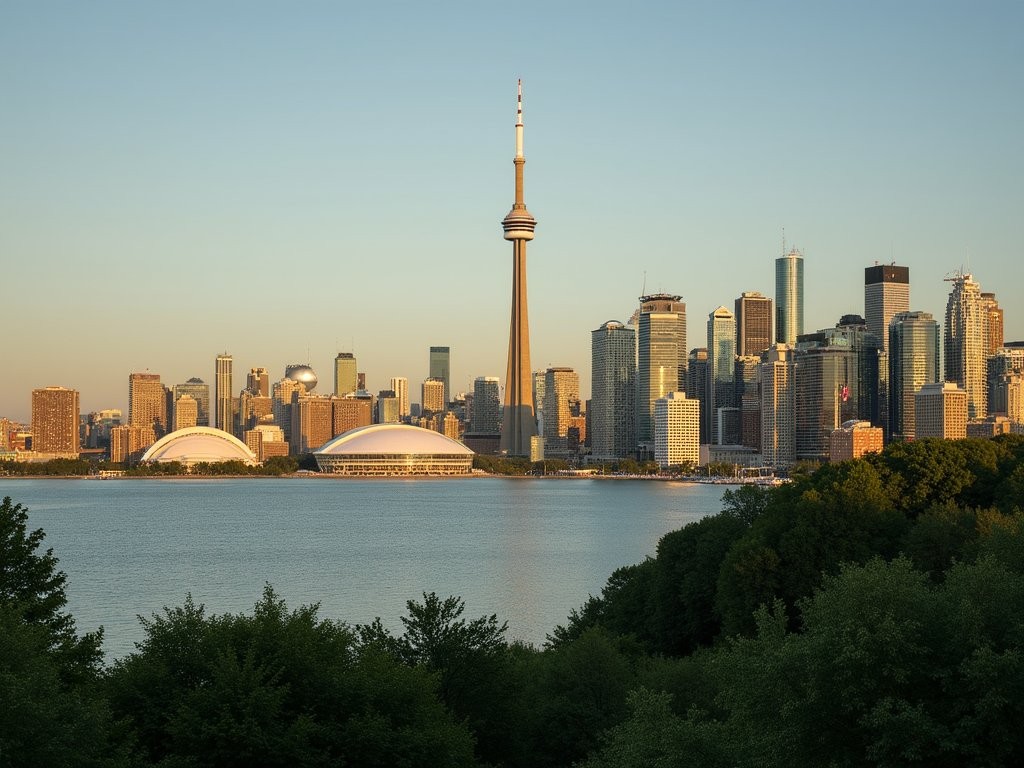
💡 Pro Tips
- Schedule work blocks in 90-minute increments with intentional exploration breaks between sessions
- Use the TTC Day Pass on weekends for unlimited transit when exploring multiple neighborhoods
- Consider working extended hours midweek to free up a three-day weekend for deeper exploration
Final Thoughts
Toronto's evolution into a digital nomad destination represents more than just available Wi-Fi and co-working spaces—it reflects a deeper urban transformation that balances global connectivity with local community. As someone who studies how cities function, I found Toronto's approach particularly thoughtful in its integration of work, leisure, and community spaces. The city offers a masterclass in how urban design can facilitate both productivity and meaningful connection for temporary residents. Whether you're considering a brief working visit or an extended stay, Toronto provides the essential infrastructure for digital nomads while offering something increasingly rare in our hyper-connected world: authentic community and unexpected discovery. As I return to my planning work in Birmingham, I carry with me not just professional observations but a renewed appreciation for how my homeland continues to evolve. I'd love to hear about your experiences working remotely in Toronto—connect with me on social media or leave a comment below.
✨ Key Takeaways
- Toronto's neighborhood diversity offers distinct digital nomad experiences, from the professional intensity of downtown to the creative energy of west-end communities
- The city's public spaces and institutions provide excellent free or low-cost workspace alternatives to formal co-working venues
- Community integration is remarkably accessible through both professional networks and recreational groups
- Strategic planning allows digital nomads to balance productivity with meaningful exploration of the city
📋 Practical Information
Best Time to Visit
May-October for pleasant weather and outdoor workspace options
Budget Estimate
$3,000-4,500 CAD/month including accommodation, co-working, and moderate dining out
Recommended Duration
Minimum 3 weeks to experience multiple neighborhoods
Difficulty Level
Moderate









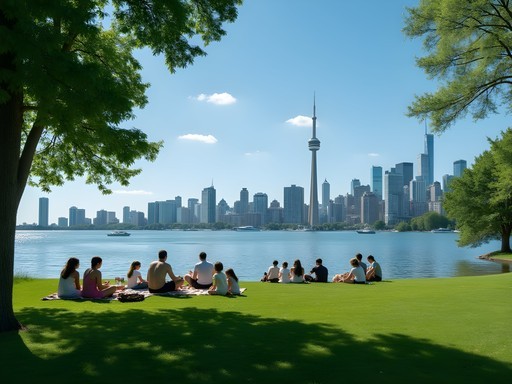
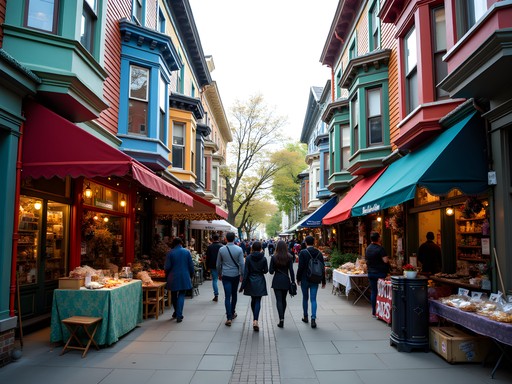


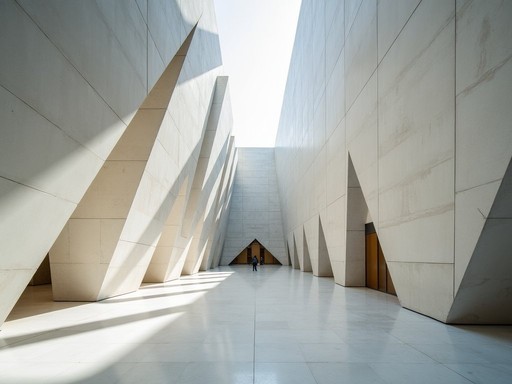


Comments
Raymond Hassan
Solid guide. Toronto's definitely matured as a digital nomad hub. The visa situation is worth emphasizing though—Canada's pretty strict about working on tourist visas even remotely. I've met several nomads who got questioned at the border about their laptop setup and work arrangements. The 6-month tourist allowance is generous but they do ask questions. Also, the cost of living has skyrocketed since 2023. Even a modest Airbnb in the neighborhoods you mentioned runs $1800-2500/month now. Still worth it for the infrastructure and community, but budget accordingly.
starwalker
This is exactly what I needed! Adding Toronto to my list for this fall. Love how detailed this is about the actual work setup stuff, not just tourist things.
wildchamp
Thinking about doing this in February but worried about the winter. How bad is it really for getting around and staying motivated when its freezing? I work from home normally so wondering if the cold would keep me stuck inside all the time. Also are the coworking spaces heated well lol
Raymond Hassan
February is brutal, not gonna lie. I was there two winters ago and you definitely need proper gear. The PATH system (underground walkways) downtown helps a lot though—you can get between buildings without going outside. Co-working spaces are well-heated, sometimes too much actually.
Amit Sullivan
Wonderful piece, Wyatt. Toronto holds a special place for me - I spent a winter there in 2019 working on a documentary project. What struck me most was how the city's multiculturalism creates these incredible pockets of community. The Kensington Market area you mentioned is like stepping into different countries within a single afternoon. For digital nomads seeking that cultural immersion alongside productivity, it's truly unmatched in North America. The cold does test your resolve, but there's something about working in a cozy cafe while snow falls outside that's rather magical. Have you explored the Distillery District for workspaces? Some lovely quiet spots there.
Wyatt West
Thanks Amit! Yes, the Distillery District is fantastic - especially on weekdays when it's less touristy. That documentary sounds fascinating!
exploreking
whats the internet like? reliable enough for video calls all day?
wildchamp
not the author but i was there last year and yeah internet is solid, way better than most places ive worked from
wavegal
Love this! Toronto looks amazing
Douglas Bradley
Great breakdown, Wyatt. I spent a month working from Toronto last fall and your neighborhood analysis is spot-on. I'd add that the Annex is also worth considering for digital nomads—close to U of T campus so tons of cafes with good wifi, and the rent is slightly more reasonable than King West. The commute to downtown co-working spaces is easy on the subway. One thing I found challenging was finding good spots to work on weekends when co-working spaces were closed. Did you have any go-to weekend workspaces?
Wyatt West
The Annex is definitely underrated! For weekends I usually rotated between Balzac's Coffee locations and the Reference Library—the latter has great wifi and quiet work areas. Some hotel lobbies downtown are also surprisingly tolerant if you buy coffee.
journeynomad9990
how much are the coworking spaces typically per month?
Wyatt West
Ranges from about $250-500 CAD depending on the space and membership level. The ones in Liberty Village tend to be on the higher end, while some in the east end are more affordable.
journeynomad9990
thanks! thats actually not as bad as i thought
sunnyphotographer
Just booked my flight for June!! So excited to explore Toronto now. Your photos make it look amazing!
springking
What about the visa situation? Can Americans just show up and work remotely for a few months or do you need something special?
bluelover
You can visit for up to 6 months as a tourist but technically you're supposed to be working for a non-Canadian company. Just don't overstay!
Venture X
Premium card with 2X miles, $300 travel credit, Priority Pass